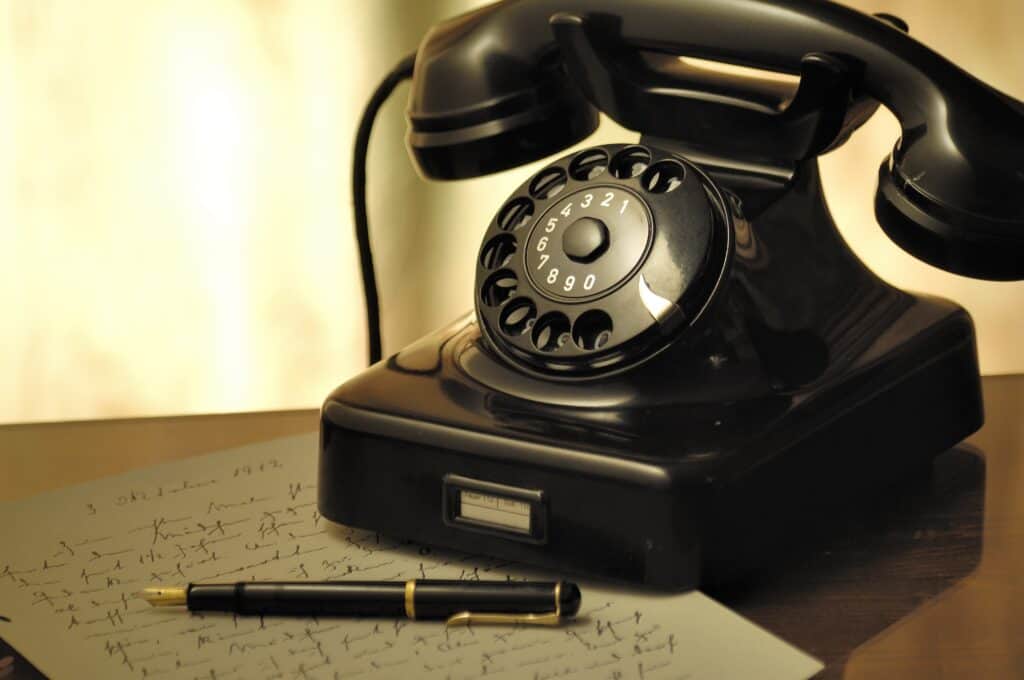Suggested article for Village Website
Phones, Power and Persuasion

As most of you will know, on 26th July 2021 there was a power outage in Belstone which for some properties went on for six hours. The Parish Council was approached to take some action on behalf of villagers who were cut off with no emergency phone access, which could be very worrying when you have an elderly or infirm person in the house.
On the old analogue telephone system this would not have happened, the phone line was powered from the local exchange, so you could still make calls. Most people will not have realised that this would change with a digital line. So why are we changing to digital?
In 2017, BT announced the digital telephone switchover. The analogue Public Switch Telephone Network (PSTN) systems are just getting too old, they’re based on technology from the 1800s and can no longer be maintained. It’s a bit like the television switch to digital. Over eight years, the UK is moving from analogue telephones to a faster digital system, which works over the internet. It is planned to switch off the old network for good in 2025. This change will affect homes and businesses throughout the UK, going digital is not a choice after 2025! To find out more about it go to https://www.openreach.com/upgrading-the-UK-to-digital-phone-lines/for-my-home-or-business.
The part of BT that provides the lines is called Openreach, it runs the network and connects everything. Your phone, broadband and ethernet services are supplied by other companies called providers, you don’t have to use BT. There are apparently 650+ communications providers in the UK, but the most well-known are probably BT, TalkTalk, Vodafone, PlusNet, Virgin, Sky and EE.
If you don’t currently have broadband, don’t worry. The UK communications regulator, Ofcom, has said that providers must offer basic internet connections for phone calls only. You won’t need to fork out for a superfast connection that you don’t intend to use.
Ofcom have also said that “providers should have at least one solution that enables access to emergency organisations for a minimum of one hour in the event of a power outage in the premises”. (General Condition A3). So whichever provider you have chosen, they must provide you with something that allows you to make those phone calls. Ofcom’s guidance also states “We consider that providers should offer and implement solutions that are appropriate for the individual needs of their customers and providers should, as a minimum, offer the solution free to those customers who are at risk as they are dependent on their landline.” The providers should not only be supplying a system to help you, it is their job to tell you about the power cut danger. There is a long document detailing the Ofcom Guidance https://www.ofcom.org.uk/__data/assets/pdf_file/0016/123118/guidance-emergency-access-power-cut.pdf

Photo by Anna Nekrashevich from Pexels
For most places in the country, where people can access a mobile phone signal, having a power backup is not as critical. But in Belstone where there is a ‘total not-spot’ (we can’t get a mobile signal from any network in the village), it is much more difficult. Ofcom recognise that where there is no mobile signal it is even more important for providers to consider everyone, not just disabled people, as ‘at risk’.
Luckily there is help at hand regarding the mobile phone. The government say they are going to provide a £500 million to build new masts to eliminate ‘total not-spots’, as part of a project called the Shared Rural Network. They say that the South West will have 99% coverage by 2027, and National Parks will have 74% coverage. For more details click here. The Parish Council has emailed West Devon Borough Council (WDBC) to emphasise the importance of a mobile signal for Belstone in their plans. They will also be working with the WDBC Digital Enhancement Officer to improve infrastructure.
There are some strange spots in the village which there is a mobile signal! Do talk with your neighbours to see if they have coverage that you might be able to use in an emergency.
The Parish Council is happy to support anyone in their attempts to get an alternative method of accessing emergency services, but it starts with a conversation with your provider. Here are some suggestions:
- Shop around, there are other network providers who may offer you a better service. Do let me know if you have found a good one. Let your current provider know that you are prepared to change provider if they don’t provide a better service!
- Tell your provider if you don’t have any mobile signal at your home, they probably assume everybody has.
- Tell your provider if you or a member of your household have disability or accessibility requirements.
- Tell your provider if you have had long power cuts recently, and see if they will provide a longer back up.
- Tell your provider that you understand that you are entitled to at least an hour’s alternative power to enable you to make emergency calls, and quote Ofcom General Condition A3.
- Try to resolve the dispute by explaining your problem and what you want done about it. If the company has its own internal complaints procedure, follow it.
- If you live in Belstone, copy me ([email protected]) in on any emails that you send to complain, so that we can build up a body of evidence to support any further action.
- If your problem is still unresolved after eight weeks, you can complain to an independent Alternative Dispute Resolution (ADR) scheme. Ask your provider for a ‘deadlock’ letter so that you can refer your dispute to the relevant ADR scheme directly before the eight-week mark. Ofcom has approved two ADR Schemes: CISAS and Ombudsman Services: Communications. Your provider will tell you which scheme it is a member of, or you can use the Ofcom ADR checker.
I hope that together we can solve this problem.
Sally Fullwood
Belstone Parish Clerk
